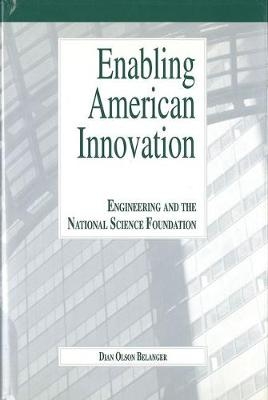
Enabling American Innovation
Engineering and the National Science Foundation
Seiten
1998
Purdue University Press (Verlag)
978-1-55753-111-7 (ISBN)
Purdue University Press (Verlag)
978-1-55753-111-7 (ISBN)
- Titel z.Zt. nicht lieferbar
- Versandkostenfrei innerhalb Deutschlands
- Auch auf Rechnung
- Verfügbarkeit in der Filiale vor Ort prüfen
- Artikel merken
Traces engineers' struggle to win intellectual, financial and organizational recognition within the National Science Foundation. This book analyzes the tools and arguments, how they altered over time, and how budgetary and philosophical debates were played out through organizational manipulation.
Engineering and science are often spoken of in the same breath, as almost interchangeable parts of a great national striving for technical excellence, achievement, and prestige. But science and engineering also live in a sort of antithetical intellectual rival, often argued in value-laden expressions of pure versus applied science. Enabling American Innovation traces engineers' struggle to win intellectual, financial, and organizational recognition within the National Science Foundation (NSF), a federal agency formed in 1950 to support basic scientific research. The tools and arguments of this struggle altered over time, but engineers continued to assert the value of their contribution, usually measured in comparative budgetary terms, and philosophical debates, as they were played out through organizational manipulation. By the 1980s, NSF leaders agreed that engineering and science should enjoy an equal and mutually beneficial relationship within the NSF. This fascinating story unfolds within the context of the evolution of the engineering profession, national politics, and the external pressures of the cold war and global economic competition. In spite of, and because of, these forces the NSF evolved and came to promote an interdisciplinary focus and systems orientation, thus becoming an active agent in supporting the acquisition of knowledge and putting it to use.
Engineering and science are often spoken of in the same breath, as almost interchangeable parts of a great national striving for technical excellence, achievement, and prestige. But science and engineering also live in a sort of antithetical intellectual rival, often argued in value-laden expressions of pure versus applied science. Enabling American Innovation traces engineers' struggle to win intellectual, financial, and organizational recognition within the National Science Foundation (NSF), a federal agency formed in 1950 to support basic scientific research. The tools and arguments of this struggle altered over time, but engineers continued to assert the value of their contribution, usually measured in comparative budgetary terms, and philosophical debates, as they were played out through organizational manipulation. By the 1980s, NSF leaders agreed that engineering and science should enjoy an equal and mutually beneficial relationship within the NSF. This fascinating story unfolds within the context of the evolution of the engineering profession, national politics, and the external pressures of the cold war and global economic competition. In spite of, and because of, these forces the NSF evolved and came to promote an interdisciplinary focus and systems orientation, thus becoming an active agent in supporting the acquisition of knowledge and putting it to use.
Dian Olson Belanger, an independent historian, is the author of one previous book, Managing American Wildlife: A History of the International Association of Fish and Wildlife Agencies, which won the Wildlife Society's national book award in 1990.
| Erscheint lt. Verlag | 31.3.1998 |
|---|---|
| Zusatzinfo | notes, index |
| Verlagsort | West Lafayette |
| Sprache | englisch |
| Gewicht | 756 g |
| Themenwelt | Geschichte ► Teilgebiete der Geschichte ► Technikgeschichte |
| Sozialwissenschaften | |
| Technik ► Maschinenbau | |
| ISBN-10 | 1-55753-111-0 / 1557531110 |
| ISBN-13 | 978-1-55753-111-7 / 9781557531117 |
| Zustand | Neuware |
| Haben Sie eine Frage zum Produkt? |
Mehr entdecken
aus dem Bereich
aus dem Bereich
Buch | Softcover (2024)
Lehmanns Media (Verlag)
19,95 €
Vom Perceptron zum Deep Learning
Buch | Softcover (2022)
Springer Vieweg (Verlag)
19,99 €
Digitalisierung neu denken für eine gerechte Gesellschaft
Buch | Hardcover (2023)
Quadriga (Verlag)
20,00 €


